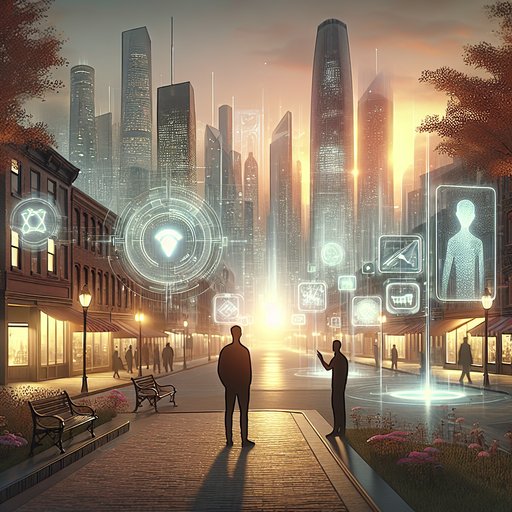
In a city that has come to trust prediction the way earlier generations trusted tides, the argument about free will and determinism no longer lives only in philosophy seminars. It hums in server rooms, hangs over court benches, whispers through kitchen windows where someone is late on purpose and someone else insists there is no other way he could have done it. Lina, a municipal engineer whose job is to keep the city's arteries flowing, sits in the center of this tension. She spends her days tuning Metronome, the traffic orchestration system that forecasts crowds and curves human movement into smoother lines. She spends her nights listening to her mother tap out uneven rhythms on a spoon, a stubborn syncopation that refuses to be averaged. Between the algorithm and the errant beat, she begins to wonder where a choice begins, and whether it can be traced back to a single finger poised over a button.

When sight becomes a setting, ethics follows with a lag. Virtual and augmented realities do not simply decorate the senses; they rearrange attention, memory, and the terms of encounter. A city can be softened, a face can be remade, a past can be revised. The result is not mere novelty but a renegotiation of what we owe to one another and to ourselves: whether simulated harm counts as harm, whether privacy includes the right to appear, whether curated lives remain truly ours. This story follows a municipal ethicist and her brother through a landscape where people can toggle discomfort and rehearse compassion, where errors in perception become injuries, and where choosing what to see quietly becomes a moral act. Their choices are ordinary, like switches. Their consequences are not.

On the third night of the blackout, when the streets had quieted into a kind of dark listening, Nadia opened the Museum of Faiths and rolled a stockpot to the lobby. The building had always seemed like a place where questions lived behind glass, but tonight people came with candles and sacks of rice and worries that could not wait for daylight. They arrived in layers—an imam with his daughter, a nun with bandaged fingers, a Sikh bus driver still wearing fluorescent stripes, a Buddhist monk smelling faintly of rain, a rabbi whose hat cast a small moon on the marble floor, a Hindu schoolteacher whose students trailed behind like birds. The plan, if there was one, involved a flame, water, and what they could agree to put into it. Nadia flicked a match. The wick took. The room filled with a thin, hopeful kind of heat.

When machines take on the labor that once structured human days, something quieter remains, like the tone that lingers after a bell. We still wake. We still reach for tasks that anchor us to one another and to a place, even as an algorithm learns, with astonishing accuracy, to make the shipyard machine sing and the streetlights blink in time. In one harbor city, a man keeps a job that a committee has decided is mostly symbolic. He listens to gates that decide whether the sea will enter, and he waits, and he wonders what the word ‘work’ means when the pay arrives either way. In the doorway of his watchroom, children press their faces to the glass. The story begins with a hand on a lever, and with the understanding that purpose might live in the attention before anything happens at all.




















































